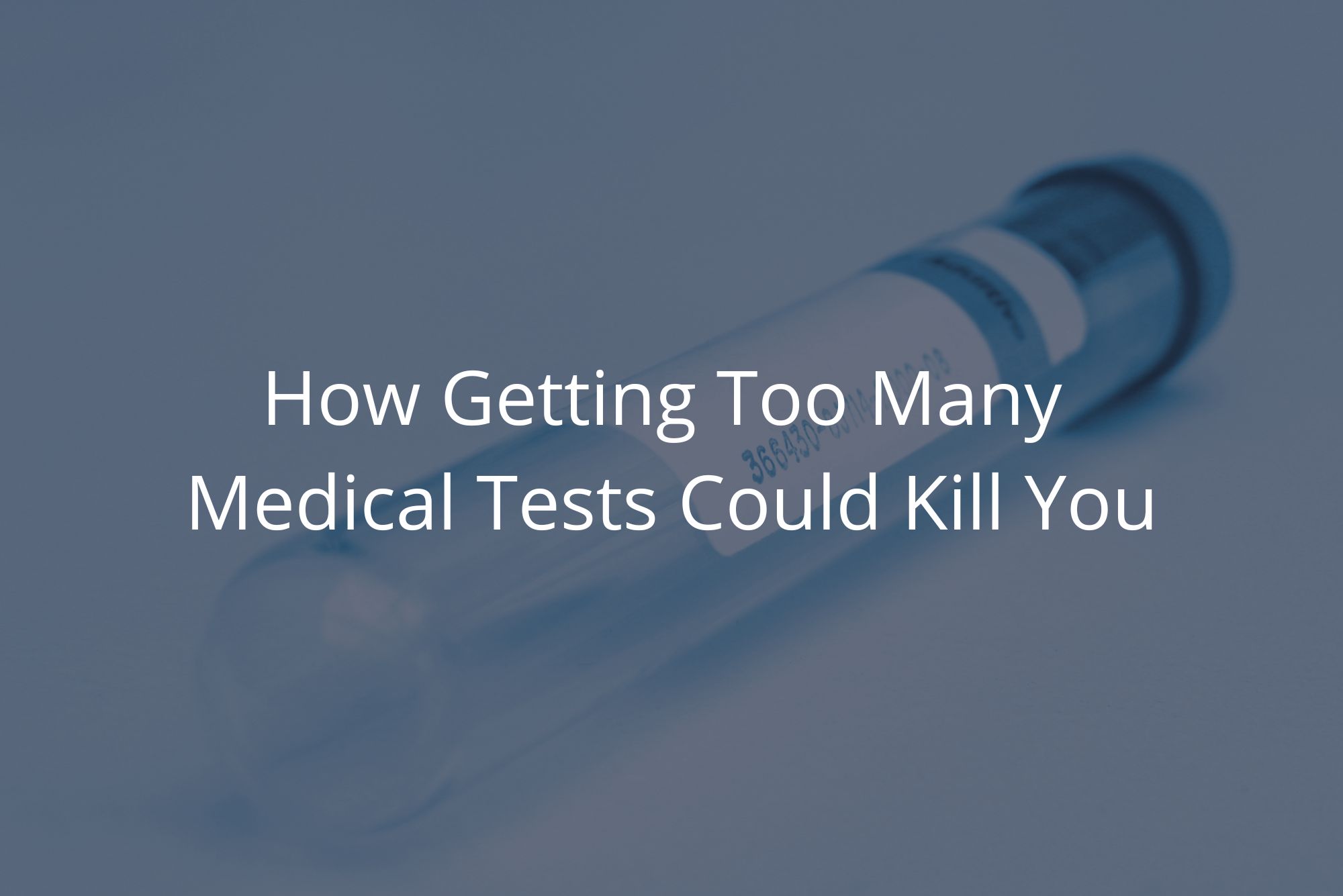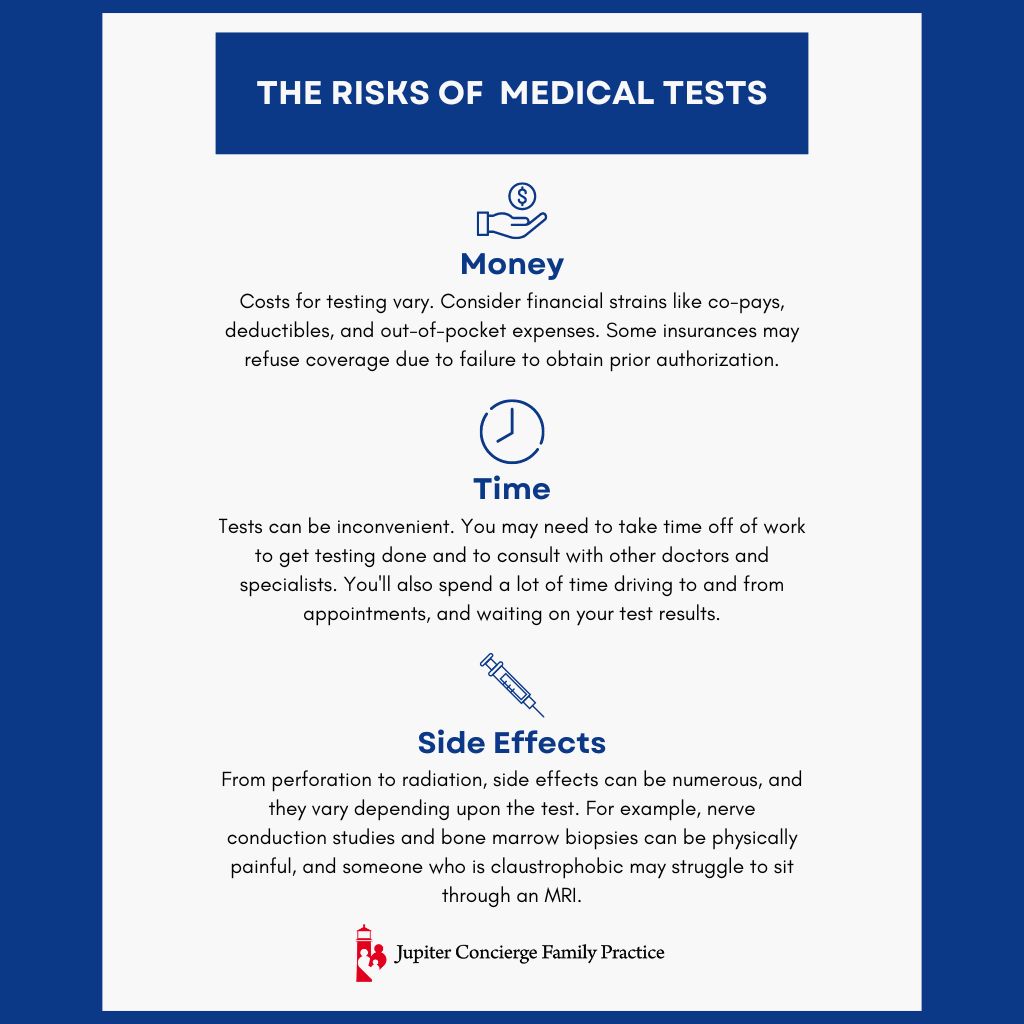 We have many medical tests at our disposal today, allowing us to literally see what’s going on inside our bodies. These tests can be life-saving, but they aren’t without risk. Testing can be increasingly invasive, leading to serious complications — even death.
We have many medical tests at our disposal today, allowing us to literally see what’s going on inside our bodies. These tests can be life-saving, but they aren’t without risk. Testing can be increasingly invasive, leading to serious complications — even death.
Here’s a cautionary tale I tell often: A colleague of mine once had heartburn that he treated with acid-reducing medication. He got an ultrasound of his gallbladder, which showed an abnormality in his pancreas — likely a benign cyst. He pursued further evaluation with an MRI, and the result was indeterminate. From there, he decided to have a biopsy done. Due to a complication during the biopsy, he hemorrhaged and died.
So, when is it appropriate to get medical testing? Let’s take a look.
Three Reasons to Get a Medical Test
- To direct a treatment plan. Using tests to inform and dictate a treatment plan is a great use of testing technology, period.
- To confirm something worse isn’t going on. Let’s say you’re a 50-year-old patient whose parents died in their 60s of heart attacks, and you come in with heartburn symptoms suggestive of acid reflux. Because your family history is compelling, we’ll probably send you to a cardiologist for a one-time cardiac stress test.
- Peace of mind. If you, the patient, are so worried about ruling out a condition that it’s keeping you up at night, a test can ease your mind. We don’t want to cause strain and stress, damaging your health, when a test can solve the problem. In this case, though, it’s always important to be aware of the risks.
The Risks of Testing
There’s no such thing as a free test, even if the test is covered by your health insurance. A test will cost you in one or more of the following ways:
- Money. There’s always money involved in testing. While they vary in expense, you need to consider the financial strains of testing, such as co-pays, deductibles, and out-of-pocket expenses. Some insurances may even refuse coverage due to failure to obtain prior authorization for the test requested.
- Time. Tests can be inconvenient. You may need to take time off of work to get testing done and to consult with other doctors and specialists. You’ll also spend a lot of time driving to and from appointments, and waiting on your test results.
- Side effects. From perforations that requires emergency surgery to radiation exposure that could increase your risk of cancer, side effects can be numerous, and they vary depending on the test. For example, nerve conduction studies and bone marrow biopsies can be physically painful, and someone who’s claustrophobic may struggle to sit through an MRI.
Another side effect of testing can be a false sense of security. Remember that a “normal” test result does not necessarily mean you don’t have a disease. It’s important to take a comprehensive view of your health, regardless of specific test results.
So, Should I Get a Test?
Bottom line: It depends. From my perspective, you should only get a test when the result is going to change how you approach a problem.
If you’re unsure whether to get a medical test, ask a trusted physician. Make sure you understand the risks and benefits of every test you’re considering, and listen to the physician’s recommendations — after all, everything we as humans do has a consequence, and that includes testing.
Additionally, make sure tests are actionable. If you come across a test you’re interested in, make sure there’s something to do with the results. Some tests can be inexpensive, but they may not be necessary. There’s no point in testing when the results either won’t lead to confirmation that you’re on the correct treatment plan or suggest guidance for how to alter your treatment plan.
Similarly, consider the whole picture. If you’re a 90-year-old thinking about colon cancer screening, the risk of a perforated colon likely outweighs the benefits of the test.

